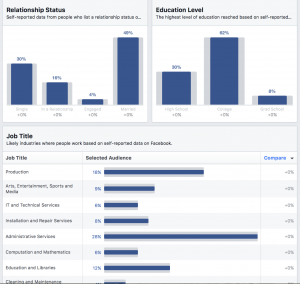— April 19, 2019

If you work with an SEO expert, you have encounter times when her recommendations or priorities conflict with the overall goal of improving the website. This will happen when content changes on the website are written for search engines and not for real people.
Let’s look at an example:
Say you are responsible for your company’s website experience. You sell books online, and some of your key pages are not the product pages for the books themselves, but the category pages for each genre of book that you sell. Your SEO expert tells you that “true crime books online” is a high volume keyword and so recommends adding that phrase into the text of the page sporadically, including in the main heading.
On the surface this is no big deal, but once the copy changes are complete, the page reads as if a robot wrote it and in the language that we use to communicate with other human beings every day, it sounds funny.
That’s because your SEO expert is writing for the search engines.
What should you do in this instance?
In my experience, user experience has to win out over SEO. While I agree that SEO is critical to any site’s success, at the end of the day you have created your website for people to use. And the user experience is priority number one.
A good SEO strategy understands that the user is the champion. We are solving for the user first, and the search engines second. And so every recommendation or assignment that they come up with should factor in the end effect on the user.
Most times, there is no conflict. Search engines prefer a page that loads faster, so does the user. Search engines prefer a domain with higher authority, so does the user. Search engines prefer a page that answers the question a user types in, so does the user.
Where conflict exists, it usually comes down to the phrasing that is used in the website copy. And though every attempt should be made to include text that searchers will use to find you on Google, it still must be written so that it can be read and understood easily.
Because at the end of the day, you are writing for the user.
Digital & Social Articles on Business 2 Community
(47)








